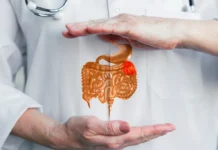Dearest Rosemary, as I pen this letter, I am acutely aware of the irony that surrounds me. A significant portion of my career as a pediatric psychologist has been dedicated to providing clinical care to children and their families within the confines of the pediatric intensive care unit (PICU). At first glance, the PICU exudes an austere atmosphere, characterized by glass doors, barren walls, and a stark absence of color.
In this realm of paradoxes, there exists a duality—a simultaneous quietude and clamor. The overwhelming cacophony of 10 distinct IV pumps and the incessant alarms from the ventilator create an environment that constantly underscores fragility. However, over the 50 days spent within these walls, I unearthed a facet of this unit that defied all preconceptions. The ceaseless symphony of medical machinery gradually receded, making way for a melodic blend of care, understanding, acknowledgement, and insight. This harmonious fusion became the backdrop for the most challenging seven weeks of my life.
Love in the PICU: The Hidden Language of Nurses
Initially, these voices belonged to strangers, speaking in a language I had yet to decipher and conveying truths I was hesitant to embrace. However, with time, I found myself embracing this new language and confronting the realities it revealed. These voices transformed into beacons of comfort and solace for both of us. Reassuringly, they would declare, “Rosemary, there’s a tube in your throat helping you breathe. You’re going to be okay. We love you.” These patient explanations became your lullabies, especially when uttered by your beloved nurses.
Love within the PICU is a unique phenomenon, distinct from any other I have encountered, yet fundamentally rooted in the same essence. It blossoms from connections and shared purpose—an unspoken desire to comprehend and learn from one another. Despite the seemingly insurmountable barriers imposed by heavy sedation and intubation, you and your nurses forged an unbreakable bond. They discovered your feisty, loyal, and loving spirit. You, in turn, came to appreciate their unwavering love, dedication, and compassion.
Unwavering Love in the Face of Adversity
Even when faced with adversity, the love in the room intensified. Rather than retreating and shielding themselves from the emotional toll of losing a patient, your nursing team rallied around you with unwavering support. During dialysis and treatment for your failing lungs and heart, you required 2:1 care, yet your nurses responded with unwavering dedication and an even deeper love. We jokingly referred to this as your preferred ratio—two nurses for every Rosemary!
When we received the devastating news that medical intervention had reached its limits, the love from the nurses seemed to double again, radiating outward like a beacon. It accompanied us into the conference room, where we shared the heartbreaking news with your sister. This unwavering love extended beyond the confines of their shift, ensuring that your sister felt the significance of her presence and the enveloping love that surrounded her. It lingered in the hallway outside your room, where I collapsed in sobs after assisting you and your sister in saying goodbye. Love sat beside me, offering solace until I could find my breath again.
Love’s Enduring Legacy: Pediatric Intensive Care Unit (PICU)
An outpouring of love witnessed your final moments. In those fleeting minutes, you were enveloped in an abundance of love—from your dad and me, the respiratory therapist who facilitated your peaceful breaths, and the pain, palliative care, and PICU physicians who ensured your freedom from pain. I felt an overwhelming sense of love from your nurses, who had become an integral part of our family. Surrounded by love and the gentle melody of “You Are My Sunshine,” you drifted away peacefully.
The love within the PICU didn’t dissipate with your passing or after I held you for the last time. It manifested in your nurses, who journeyed from the oncology unit to lovingly wash your body and remain by your side. That love accompanied us as we packed up your belongings and left the hospital without you. The love from the PICU graced your funeral and the rainbow unicorn-themed reception. It traveled back home with us through letters, pictures, and cherished memories.
A Love Story Forged in the Pediatric Intensive Care Unit
When most people imagine a PICU, they don’t associate it with love. While I had witnessed it as a clinician, I never fully grasped the profound depth of the love given or its transformative power until now. Rosemary, you were cherished beyond measure. Although I wish you hadn’t experienced the love that emerged from those challenging days, considering them only a nightmarish dream, I find solace in knowing how profoundly you were loved within those PICU walls. I am eternally grateful for this profound gift.
What is pediatric intensive care?
Pediatric intensive care is a specialized branch of medicine that gives you the highest degree of care for seriously sick youngsters. Those admitted to the Pediatric Intensive Care Unit (PICU) are generally in excessive circumstances, necessitating close monitoring and specialized remedies.
What conditions do PICUs deal with?
PICUs deal with a huge spectrum of conditions, inclusive of:
- Respiratory issues like pneumonia, allergies, and bronchiolitis
- Heart troubles, including congenital defects, arrhythmias, and heart failure
- Neurological troubles like seizures, meningitis, and mind tumors
- Trauma from incidents like vehicle accidents, falls, and burns
- Life-threatening infections like sepsis
- Post-operative care following the most important surgical procedures
What to Expect within the PICU
A devoted crew of professionals, such as pediatricians, nurses, respiratory therapists, and pharmacists, will take care of your toddler. Continuous tracking of important signs and symptoms and normal tests, which include X-rays or blood exams, can be necessary. Treatment modalities, starting from oxygen therapy to surgical operations, can be tailored to your baby’s particular condition.
How can I support my child?
Your presence is essential for offering consolation to a sick and scared baby. Additional ways to aid your infant include:
- Asking questions about their circumstance and treatment
- Adhering to the instructions of the PICU crew
- Offering comfort and reassurance
What is the PICU team?
The PICU crew is a collaboration of experts, which includes:
- Pediatricians: Doctors focusing on pediatric care
- Nurses: Caregivers offering bedside care
- Respiratory therapists: Specialists helping sufferers with breathing problems
- Pharmacists: Experts making sure the appropriate remedy management
Visiting Hours and Guidelines inside the PICU
Visiting hours vary by health facility, with the maximum permitting parents and caregivers unrestricted admission. When travelling, adherence to suggestions, including handwashing and mask-wearing, can be required. Limits on the range of visitors inside the room will depend on location.
Self-Care Tips for Parents and Caregivers inside the PICU
Caring for a child in the PICU can be stressful, so prioritizing self-care is critical. Tips encompass:
- Taking breaks to stroll, get clean air, or relax
- Consuming nutritious meals to live energized
- Ensuring enough sleep for better caregiving potential
- Talking to trusted pals, own family, or therapists for emotional support and stress comfort
Pediatric Intensive Care Unit: Hope and Healing
The Pediatric Intensive Care Unit (PICU) at Medical Seek stands as a beacon of hope for critically ill children, offering exceptional care to infants and adolescents aged 1 month to 18 years. Our team of highly trained specialists is dedicated to guiding young patients toward full recovery, even in the face of life-threatening conditions.
Led by Western-trained staff, our PICU boasts a compassionate multidisciplinary team that recognizes the emotional toll critical care can take on families. We are committed to providing comprehensive support, ensuring families feel informed and engaged throughout their child’s treatment journey.
Expertise in the Management of Complex Conditions
Our PICU routinely manages a diverse range of complex conditions, including severe chest infections, asthma, croup, septicemia, prolonged seizures (Status Epilepticus), trauma (including head injuries), neurological conditions (such as meningitis, encephalitis, and coma), patients requiring long-term ventilation with a transition to home ventilation, complex fluid and electrolyte disturbances (SIADH, Diabetes Insipidus, salt wasting), and recovery following complex surgeries on the bowels, chest, brain, and other vital organs.
A compassionate multidisciplinary team
In addition to our expert medical team, our multidisciplinary lineup includes PICU-trained nurses, pediatric pharmacists, pediatric dietitians, respiratory therapists, physiotherapists, and occupational therapists.
Our technical services cover an extensive range, ensuring the highest level of care for every patient’s unique needs.
- Mechanical respiratory support (both non-invasive and invasive, including conventional and high-frequency oscillatory ventilation)
- Inhaled nitric oxide
- Hemodynamic monitoring using indwelling arterial catheters, central venous catheters, and therapy with vasoactive medications
- Echocardiography (ECHO), electrocardiography (ECG)
- Intracranial pressure monitoring and management
- Nutritional supplementation via nasogastric, nasojejunal, or parenteral nutrition
- Renal replacement therapy using peritoneal dialysis and continuous venovenous hemofiltration
- Post-tracheostomy care
- Ultrasound-guided procedures such as the insertion of invasive arterial, central venous, and hemofiltration catheters, urinary catheters, chest drains, nasojejunal tube insertions, and long-term intravenous access
Care Beyond Medical Treatment
At Medical Seek’s PICU, we understand that critical care is not just about treating medical conditions; it’s about nurturing hope, providing comfort, and fostering resilience. Our team is committed to walking alongside families every step of the way, ensuring their children receive the exceptional care they deserve.
Pediatric Critical Care Haven

Nestled in the heart of hospitals, Pediatric Intensive Care Units (PICUs) serve as specialized sanctuaries, presenting the best stage of care to significantly sick infants, children, young adults, and teens between the ages of 0 and 21. These essential devices are staffed with the aid of a multidisciplinary team of quite skilled specialists, inclusive of doctors, nurses, breathing therapists, and other healthcare professionals dedicated to supplying meticulous care to seriously sick children.
The Pivotal Role of Pediatric Intensive Care Unit (PICU)
PICUs play a pivotal role in handling the most extreme and complicated medical conditions in kids. Equipped with a spectrum of specialized services and present-day technologies, PICUs focus on intensive care, monitoring, and guidance with the number one intention of stabilizing, treating, and enhancing the results of seriously sick kids.
Tailored Services for Critical Needs
- Intensive Nursing Care: PICU nurses, with their specialized education, offer 24/7 monitoring of vital signs and symptoms, medicinal drug administration, and collaborate carefully with the clinical group to ensure the finest consequences.
- Life-Sustaining Treatments: Armed with superior scientific technologies, PICUs deliver life-sustaining remedies, which include mechanical air flow, specific medication administration via intravenous (IV) pumps, and non-stop cardiac monitoring.
- Complex Procedures: PICUs behavior problematic approaches, which include chest tube insertion, crucial line placement, and tracheostomies to provide a specialized guide.
- Family-Centered Care: Recognizing the emotional pressure on families, the PICU team of workers gives comprehensive help, presenting records, providing emotional support, and assisting with child care preparations.
Common Reasons for Pediatric Intensive Care Unit Admission
Children are admitted to the PICU for a variety of reasons, including:
- Respiratory Problems: Conditions like bronchial asthma, pneumonia, acute respiratory distress syndrome (ARDS), or bronchiolitis may additionally necessitate PICU care, especially for kids with compromised lung function.
- Severe Infections: Life-threatening infections along with meningitis, sepsis, or pneumonia might also require in-depth care to stabilize crucial capabilities.
- Post-Surgical Care: Major surgical procedures, consisting of cardiac or neurosurgery, frequently call for specialised post-operative monitoring and aid.
- Traumatic Injuries: Children experiencing intensely demanding injuries, like those from vehicle injuries or falls, may require instant critical care interventions.
- Chronic Illnesses: Acute exacerbations in chronic illnesses, which include most cancers, diabetes, or organ failure, might also necessitate PICU admission for specialized care and monitoring.
Advancements in PICU Care: Insights from Research
Recent research has substantially contributed to improving PICU care and patient results.
- Early Mobilization: Studies indicate that early mobilization of significantly unwell kids improves consequences by preventing complications such as muscle weakness, blood clots, and stress ulcers.
- Delirium Prevention: Implementing protocols for preventing and coping with delirium inside the PICU has proven effective in lowering occurrences and improving results.
- Post-Intensive Care Syndrome (PICS): Early intervention and multidisciplinary follow-up assist in mitigating the severity of PICS, reaping long-term benefits for children.
Pediatric Intensive Care Unit (PICU): Statistics and Numbers
- Number of PICUs: In the US, approximately 1,200 PICUs underscore the big demand for specialized pediatric essential care services.
- Annual Admissions: PICUs admit around 1.5 million youngsters annually inside the United States, emphasizing the excessive demand for their critical offerings.
- Average Length of Stay: The average pediatric intensive care unit (PICU) stay is about 4 days, varying based on the severity of the child’s situation and the required interventions.
- Mortality Rate: The mortality rate in pediatric intensive care units (PICU) is about 5%, showcasing the committed efforts of the PICU crew in lowering mortality and enhancing its effects.
- Financial Implications: The average cost of a pediatric intensive care unit (PICU) is envisioned at around $50,000, reflecting the specialized care, advanced technology, and professional personnel concerned.
Renowned PICUs: Leaders in Pediatric Critical Care
While every PICU possesses unique strengths, several famous units have received reputations for their information and commitment to presenting great care:
- Children’s Hospital of Philadelphia (CHOP) Internationally renowned for pediatric healthcare, CHOP’s PICU consistently provides terrific care to seriously ill youngsters.
- Sloan Kettering Memorial Hospital (MSK): Known for most cancer care expertise, MSK’s PICU provides notable critical care services to children with complicated oncological situations.
- Great Ormond Street Hospital (GOSH): A leading pediatric health facility in the United Kingdom, GOSH’s PICU is distinctly regarded for specialized care.
- Hospital for Sick Children (SickKids): SickKids, a leading pediatric hospital in Canada, has a renowned PICU that excels in complete essential care offerings.
- Saudi-German Hospital: A prestigious medical center in the United Arab Emirates with branches across the Gulf region, Saudi-German Health‘s PICU is recognized for delivering high-quality, evidence-based care.














